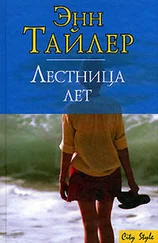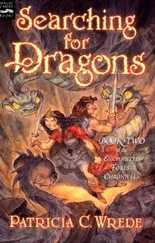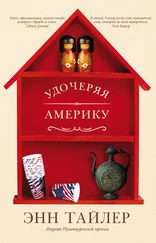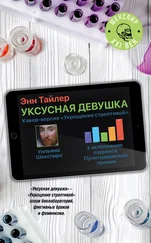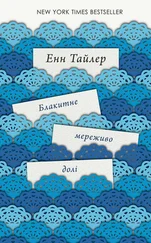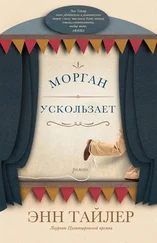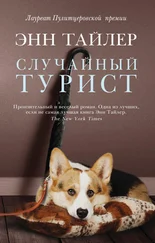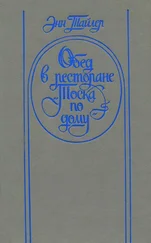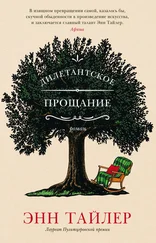Well, his stepmother died in 1958. That was a hard time. She was the last person on this earth who called him Daniel. He had not realized that until she died. She had journeyed through all his life with him, minus the first few months: seventy-seven years. The only person who remembered his kid soldier doll, and his father’s way of widening his eyes when displeased, and the rough warm Belgian blocks that used to pave the streets downtown. She left her house to Justine, and he knew why. (She was uneasy in her mind about that girl, the sweetest of his granddaughters and the most defenseless, dragged from pillar to post by harum-scarum Duncan, whom marriage had not toned down in the least.) But for months after her death Daniel would not enter her house or look at it, and although he allowed Esther and the twins to move in he told them to stay out of her bedroom. He would sort her things later, he said; he was just a little busy right now. He walked around feeling wounded, struck as if for the first time by the fact that the world kept progressing and people aged and died and nothing in life was reversible. Where had it all gone to? Whatever happened to that little brown German step-grandfather he used to have? Or Sarah Cantleigh’s family, who cried whenever they saw him, were they all dead by now? Where was that silent, musical brother of his with the tilted head?
But he was a sensible man, and in time he recovered. Then he sent for Sulie with her ring of keys. They went to sort Laura’s belongings. “Oh, my soul,” Sulie kept saying. “My soul.” She had been mad at Laura for decades, but she looked stricken as she gazed around the dark, stale room. Her eyes were triangular and the cords stood out in her neck. She had a wrinkled face like a yellow paper kite. “So this is what it all come to,” she said.
“Now if you don’t stop that,” Daniel told her, “you can just go on back to the kitchen, hear?”
He left the clothes for the women to deal with; that was none of his business. What concerned him were her desk drawers, jewelry boxes, and knick-knack shelves, which held little mementos that should be parceled out among the family. He opened drawers guiltily, shamed by the puffs of lavender scent that rose from everything as if she were still in the room somewhere. “Well, I just don’t know,” he said to each new object they found, and then when he had laid it aside Sulie would pick it up and say, “Miss Sarah always admire this,” or “Miss Bea always saying how she wish she had one like it.”
“Take it to her then. Fine. Fine,” said Daniel.
He kept nothing for himself. Those neat drawers, with everything arranged so precisely and all for nothing, took away his interest in life. And maybe Sulie’s, too. At any rate, when he offered her the oval brooch that contained a plait of Laura’s mother’s hair and had only one little thing wrong with the clasp, Sulie’s mouth turned downward. “I don’t want it,” she said.
“Suit yourself,” he told her. Not everyone would put up with Suite’s rudeness the way he did.
In a desk drawer behind a stack of stationery he found an ancient brittle advertisement for Baum’s Fine Cutlery. Beneath it, an envelope that looked as if it had been handled a great deal. Inside was a photograph of Caleb playing the cello in a stable loft.
Now, where did that come from?
He had never seen it before, but from the poor focus and the haphazard composition he guessed that it was the work of Margaret Rose that summer she got her Brownie. For a few months she had wandered everywhere, photographing the most unlikely things: Sulie stringing beans, Sarah on her rocking horse, Lafleur Boudrault playing cigar-box guitar and Mark with a mouthful of honeysuckle blossoms. (Daniel had known she was gone for good when he found all her photos of the children missing. But enough of that.) He peered at Caleb’s blurred, sharp-featured face. So far as he knew this was the only picture of Caleb in existence. Not counting the one in the album: age two, wearing a ruffled dress and holding an open book he could not possibly have read. And of course all traces of Margaret Rose had been systematically destroyed long ago. Yet in a sense this was a picture of her too, a permanent record of her hasty way of doing things; and her presence could be inferred from the head-on, quizzical look Caleb directed to the camera holder — an expression he reserved for Margaret Rose. Daniel passed a hand over his eyes. “I believe that will be all for today, Sulie,” he said.
“What, you quitting?”
“For now.”
“Leaving this mess any which old way?”
“ Later I’ll tend to it.”
When he left she was poking the piles of belongings with angry, crabbed hands, muttering beneath her breath. He didn’t care to hear what she was saying.
Then for several evenings in a row he sat alone in his thought he was up to. Caleb was best forgotten. He was surely dead by now. What did it matter what note he had played on a summer’s day in 1910?
When Justine visited home that August, she came to where he sat in his slat chair beneath an oak tree. She kissed his cheek and drew back and looked at him. He could tell she had heard something. They had all been discussing him behind his back. He snorted. “You know, of course, that I am non compos mentis ,” he told her.
She went on studying him, as if she took what he had said seriously. A literal-minded girl, Justine. Always had been.
“Could I see Caleb?” she asked finally.
“Pardon?”
He thought he had heard wrong.
“Your picture of Caleb.”
“The others are asking not to see it.”
“But I don’t even know what he looks like,” she said.
He frowned at her. Well, no, of course she wouldn’t. Probably didn’t know much of anything about him. Laura never let his name cross her lips; he seldom had himself; and to the others Caleb was nearly forgotten, a distant grownup uncle whom they had never found very interesting.
“Well,” Daniel said.
He drew out the photograph, protected now by glass.
“My brother,” he said.
“I see,” said Justine.
“Generally he did not go about in his shirtsleeves, however.”
Justine bent over the photograph. Her lowered eyelids reminded him of wings. “He looks like you,” she said.
“But his eyes were brown.”
“His face is the same.”
“Yes, I know,” said Daniel, and he sighed. He took back the picture. “The others, you see, they don’t count him any more. To them he’s a deserter.”
Justine said something he couldn’t catch.
“Eh? To me,” he said, “he is still a member here. He bedroom studying the photograph, testing the new feeling of sorrow that drove straight through his ribcage. And when that was absorbed (not lessened, just adjusted to) he became, he admitted, a little crazy. He began wondering if this photo didn’t have some secret message to it. It was impossible for such an object just to be , wasn’t it? He studied the angle of Caleb’s hat, the set of his cello, the shreds left on the stable wall by some old poster. What was the significance? Meanwhile his bachelor son and his two spinster daughters whispered downstairs, wondering what he could be doing. When Laura May knocked on his door, he jumped and shoved the photo into his pocket. All she found was her father in his easy chair with his arms folded unnaturally across his front.
Then he went to Lucy, who played a little piano still. He pulled her aside one day when she was counting Mason jars in the pantry. “Lucy,” he said, “ you know music.”
“Oh, Father Peck, I—”
“Look here. What note is this man playing?”
He showed her the photo. Surprise set little sharp pleats across her forehead. “Why, who—” she said.
Читать дальше

